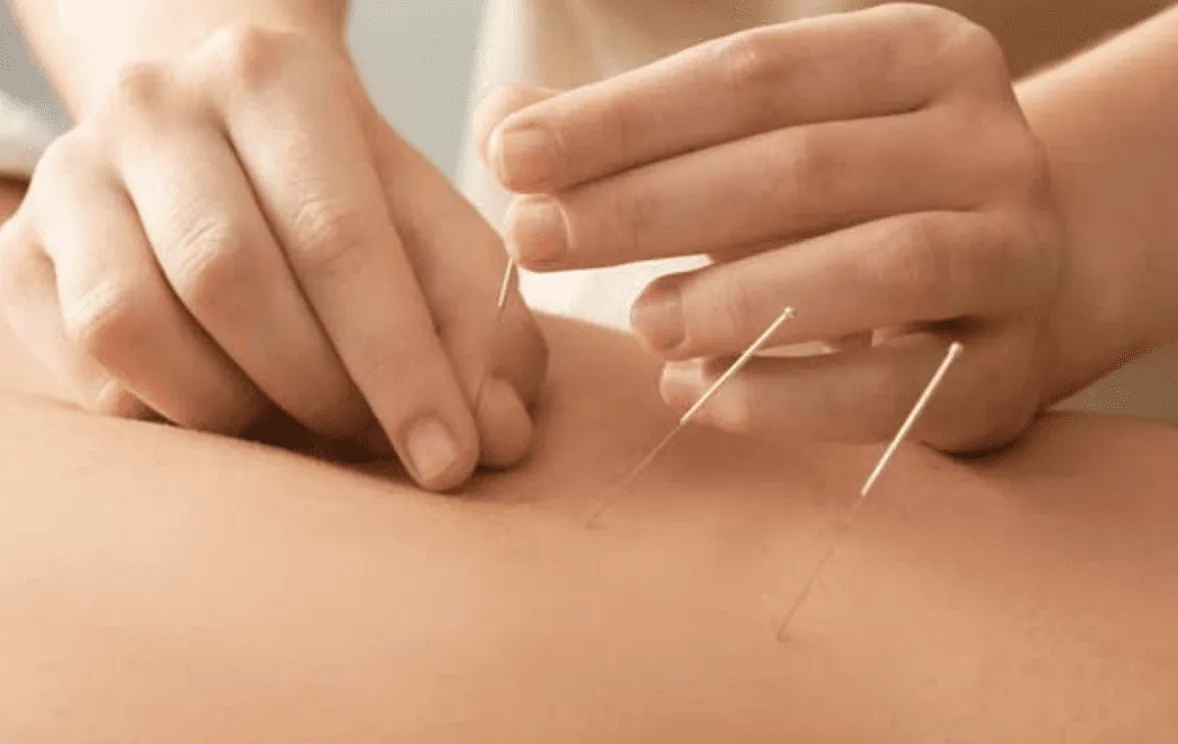Published by Peak Potential Physiotherapy & Wellness | Expert Physical Therapy in Memphis and Shelby County, TN
Dry needling has become an increasingly popular treatment for muscle pain, tension, and trigger points. However, many patients considering this therapy wonder about potential side effects, including the question: “Can dry needling cause diarrhea?” As experienced physical therapists at Peak Potential Physiotherapy & Wellness, we address this concern with evidence-based information to help you make informed decisions about your treatment.
What Is Dry Needling?
Dry needling, also known as trigger point dry needling or myofascial trigger point dry needling, is a skilled intervention performed by trained physical therapists. This technique uses thin, solid filament needles to penetrate the skin and stimulate underlying myofascial trigger points, muscular tissues, and connective tissues.
How Dry Needling Works:
- Targets myofascial trigger points (muscle knots)
- Stimulates tissue healing and pain relief
- Improves blood flow to treated areas
- Releases muscle tension and reduces inflammation
- Activates the body’s natural pain-relieving mechanisms
Can Dry Needling Cause Diarrhea? The Clinical Evidence
The short answer is: Diarrhea is not a commonly reported or documented side effect of dry needling. Based on extensive clinical research and our experience treating patients in the Memphis area, gastrointestinal symptoms like diarrhea are not typically associated with dry needling procedures.
What the Research Shows
Multiple systematic reviews and clinical studies on dry needling side effects have documented the following:
Most Common Side Effects (occurring in 1-15% of patients):
- Temporary soreness at needle insertion sites
- Minor bleeding or bruising
- Temporary muscle cramping during treatment
- Mild fatigue following treatment
Rare Side Effects (less than 1% of patients):
- Temporary dizziness or lightheadedness
- Nausea (very uncommon)
- Headache (rare)
No Scientific Evidence Links Dry Needling to Diarrhea
Current peer-reviewed research does not establish any physiological mechanism by which dry needling would directly cause diarrhea or other significant gastrointestinal disturbances.
Why Patients Might Experience Digestive Issues During Treatment
If a patient experiences diarrhea around the time of dry needling treatment, several alternative explanations are more likely:
1. Pre-Treatment Anxiety
Many patients feel nervous about needle-based treatments, which can trigger:
- Stress-induced gastrointestinal responses
- Temporary digestive sensitivity
- Changes in normal eating patterns
2. Coincidental Timing
- Viral or bacterial gastrointestinal infections
- Food sensitivity or dietary changes
- Medication side effects from other treatments
- Existing digestive conditions
3. Vasovagal Response
Some patients may experience a mild vasovagal reaction during treatment, which can include:
- Temporary nausea
- Dizziness
- Rarely, brief digestive discomfort
Understanding Normal Dry Needling Responses
At Peak Potential Physiotherapy & Wellness, we ensure our patients understand what to expect during and after dry needling treatments.
Immediate Responses (During Treatment):
- Brief muscle cramping or twitching
- Temporary sharp sensation at needle insertion
- Possible reproduction of familiar pain patterns
- Muscle relaxation following needle removal
Post-Treatment Responses (24-48 Hours):
- Mild soreness similar to post-exercise muscle fatigue
- Temporary stiffness at treatment sites
- Improved range of motion and reduced pain
- Enhanced sleep quality
When to Contact Your Physical Therapist
While diarrhea is not expected following dry needling, you should contact your healthcare provider if you experience:
- Persistent gastrointestinal symptoms lasting more than 24 hours
- Severe or worsening digestive issues
- Signs of infection at needle sites
- Unusual or concerning symptoms of any kind
The Science Behind Dry Needling Safety
Dry needling, when performed by qualified physical therapists like Dr. Trevor Ling and the team at Peak Potential, has an excellent safety profile.
Professional Standards and Training
Our certified physical therapists complete extensive training in:
- Anatomy and needle placement techniques
- Sterile needle handling procedures
- Patient assessment and screening protocols
- Recognition and management of adverse responses
Risk Minimization Strategies
We employ evidence-based safety protocols including:
- Thorough patient health history review
- Sterile, single-use needles
- Appropriate needle depth and placement
- Continuous patient monitoring during treatment
- Post-treatment care instructions
Who Should Avoid Dry Needling?
Certain conditions may make dry needling inappropriate, though gastrointestinal issues are generally not contraindications:
Absolute Contraindications:
- Pregnancy (certain body areas)
- Active infection at treatment sites
- Bleeding disorders or anticoagulant medications
- Extreme needle phobia
Relative Contraindications:
- Recent surgery in treatment areas
- Compromised immune system
- Certain cardiac conditions
- Acute inflammatory conditions
Optimizing Your Dry Needling Experience
To minimize any potential side effects and maximize treatment benefits:
Before Treatment:
- Eat a light meal 1-2 hours prior to avoid lightheadedness
- Stay adequately hydrated
- Discuss any concerns or medical conditions with your therapist
- Avoid alcohol or caffeine immediately before treatment
After Treatment:
- Stay hydrated and maintain normal eating patterns
- Apply ice to sore spots if recommended
- Avoid strenuous activity for 24 hours
- Follow your therapist’s specific post-treatment instructions
Alternative Explanations for Digestive Symptoms
If you experience diarrhea around the time of physical therapy treatment, consider these more likely causes:
Medication-Related Factors:
- New pain medications or muscle relaxants
- Antibiotic treatments
- Changes in supplement routines
Lifestyle and Stress Factors:
- Changes in routine due to injury or pain
- Stress from dealing with chronic pain conditions
- Modified diet or eating patterns
- Sleep disruption affecting digestion
Concurrent Medical Conditions:
- Irritable bowel syndrome (IBS) flare-ups
- Food intolerances or allergies
- Viral gastroenteritis
- Other unrelated health conditions
The Importance of Professional Assessment
At Peak Potential Physiotherapy & Wellness, we take a comprehensive approach to patient care that includes:
Thorough Health History:
- Complete medical history review
- Current medication assessment
- Previous treatment responses
- Lifestyle and stress factors
Individualized Treatment Planning:
- Customized needle placement protocols
- Gradual treatment progression
- Continuous monitoring and adjustment
- Integration with other therapeutic approaches
When Dry Needling May Be Right for You
Dry needling can be an effective treatment option for various conditions commonly seen at our Memphis-area practice:
Musculoskeletal Conditions:
- Chronic neck and back pain
- Shoulder impingement and rotator cuff issues
- Tennis elbow and golfer’s elbow
- Headaches and migraines related to muscle tension
- Plantar fasciitis and foot pain
Sports-Related Injuries:
- Muscle strains and overuse injuries
- IT band syndrome
- Achilles tendinopathy
- Hip and glute dysfunction
Evidence-Based Treatment Approach
Our team stays current with the latest research on dry needling effectiveness and safety through continuing education and professional development. This commitment to evidence-based practice ensures our patients receive the most appropriate and safest care possible.
Making an Informed Decision
Understanding the actual risks and benefits of dry needling helps you make the best treatment decisions for your specific condition and health status.
Questions to Ask Your Physical Therapist:
- Is dry needling appropriate for my specific condition?
- What side effects should I realistically expect?
- How many treatments might I need?
- What alternative treatments are available?
- How will you monitor my response to treatment?
Conclusion: Focus on Established Facts
While patients may have concerns about various side effects, including diarrhea, the scientific evidence does not support a connection between properly performed dry needling and gastrointestinal symptoms. The most commonly reported side effects remain localized soreness, minor bruising, and temporary muscle cramping.
If you experience any unusual symptoms following any medical treatment, including dry needling, it’s always appropriate to discuss these with your healthcare provider to determine the most likely cause and appropriate response.
Expert Care You Can Trust
At Peak Potential Physiotherapy & Wellness, our certified physical therapists combine extensive training in dry needling techniques with a commitment to patient safety and evidence-based practice. With over 370 five-star reviews from satisfied patients in the Memphis and Shelby County area, we’re dedicated to providing exceptional care and clear communication about all aspects of your treatment.
Ready to learn more about dry needling or explore treatment options for your pain condition? Contact our experienced team at Peak Potential Physiotherapy & Wellness to schedule a comprehensive evaluation and discuss whether dry needling might be right for you.
About Peak Potential Physiotherapy & Wellness
Recognized as a Top 3 provider by Memphis Health & Fitness Magazine, Peak Potential Physiotherapy & Wellness serves the Shelby County community with comprehensive physical therapy and wellness services. Our mission focuses on evidence-based care, individual attention, and helping patients achieve their optimal health potential.


